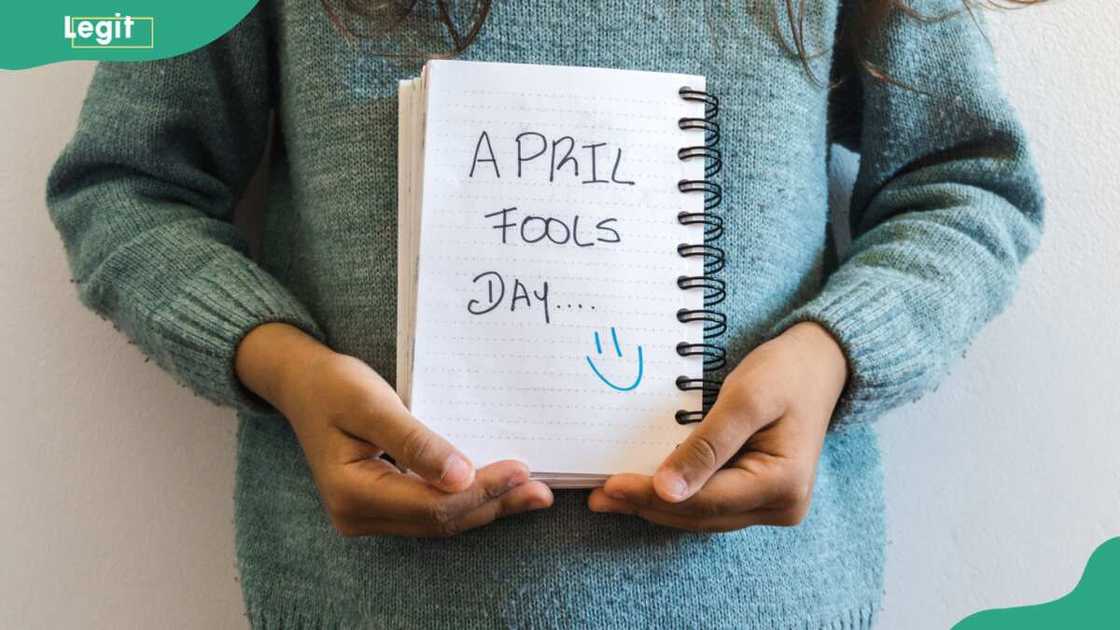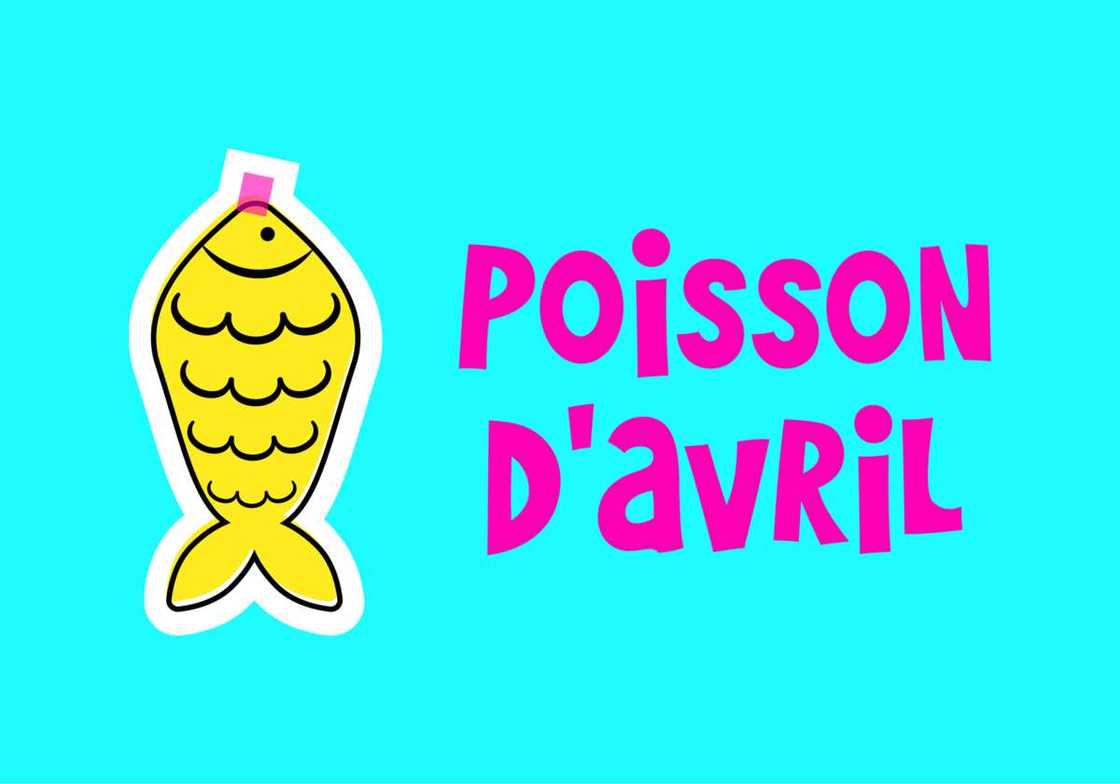16 interesting facts about April Fools' Day: Discover pranking history
You have probably experienced an April Fools' Day prank at some point. This day has been celebrated for centuries, with its origins being unknown and effectively unknowable. April Fools’ Day involves playing practical jokes and spreading hoaxes, often resulting in laughter when the truth is revealed. Here are 16 interesting facts about April Fools' Day that you probably did not know about.

Source: Getty Images
TABLE OF CONTENTS
- 16 interesting facts about April Fools' Day
- 1. April Fools' Day falls on 1 April every year
- 2. The earliest recorded April Fool’s Day prank was played on 1 April 1698
- 3. The ancient Romans observed a holiday called Hilaria, which was similar to April Fools’ Day
- 4. It is observed worldwide
- 5. Media outlets make April Fools jokes!
- 6. April Fool’s Day origin is believed to have started in France
- 7. The best pranks happened in 1957 during a BBC program
- 8. It is called Poisson d’Avril in France
- 9. Google launched Gmail on a April Fools' Day in 2004
- 10. Scotland celebrates it in two days
- 11. Many countries stop the pranks by noon
- 12. 2010 April Fools’ Day pranks went horribly wrong
- 13. Gotham’s legendary prank is believed to be April Fool's Day birthplace
- 14. In India, Holi, the festival of colours, is celebrated on 1 April
- 15. The day became popular in the US in the 18th century
- 16. The 1976 Gravity Hoax is among the memorable April Fools' prank
- What is the history of April Fools’ Day?
- Who started April Fools' Day?
- What is another name for April Fools' Day?
April Fools' Day varies across countries, but universally, the day targets to make someone play the fool. It is a day when everyone gets a free pass to channel their inner trickster and clever jests, all in the spirit of good-natured fun. That said, watch your back on this day, trust no one, and if you are clever enough to pull off a prank, make sure to deliver the punchline with a hearty “April Fools!”.
16 interesting facts about April Fools' Day
Whether you opt to play a prank or enjoy watching others in good spirits, April Fools’ Day is a perfect excuse to let loose and have a good time. Check out these facts about April Fools’ Day that you must know.

Read also
LA wildfires: Chidi Mokeme shares devastating video of how his house in the US got burnt 5 years ago
1. April Fools' Day falls on 1 April every year
April Fools' Day is celebrated annually on 1 April. This day is dedicated to light-hearted pranks and playful deception. On this day, people across the globe engage in practical jokes and hoaxes, all in good fun. The primary aim is to amuse and surprise, with the revelation of the prank happening at the end by yelling “April Fools!”.
2. The earliest recorded April Fool’s Day prank was played on 1 April 1698
The earliest known April Fools' Day prank occurred on 1 April 1698. Londoners were tricked into visiting the Tower of London to see the "washing of the lions," a non-existent event. This hoax is considered one of the first documented instances of April Fools' Day pranks, showcasing the long-standing tradition of playful deception.
3. The ancient Romans observed a holiday called Hilaria, which was similar to April Fools’ Day
In ancient Rome, a festival called Hilaria was celebrated, similar to modern-day April Fools' Day. The Romans also celebrated Hilaria on 25 March, the seventh day before the Calends of April, in honour of Cybele, the mother of the gods. Hilaria involved people disguising themselves and mocking their peers and public figures.
4. It is observed worldwide
April Fools' Day is observed worldwide, and various cultures and countries participate in the fun. From Europe to the Americas and Asia, people indulge in playful tricks and hoaxes, embracing the universal appeal of humour.
In Iran, traditions date back centuries with Sizdah Bedar, observed on 1 or 2 April, featuring elements of playful deception intertwined with superstition and springtime festivities.
5. Media outlets make April Fools jokes!
Many radios, companies, and TV channels broadcast elaborate jokes during April Fools' Day. These media pranks range from fake news reports to amusing commercials, adding to the day's entertainment. Usually, the media reveal these pranks and fake news the following day.
6. April Fool’s Day origin is believed to have started in France

Source: Getty Images
The story behind April Fools' Day is believed to have started in 16th-century France. The shift from the Julian calendar to the Gregorian calendar changed the New Year from 1 April to 1 January. Those who continued celebrating the New Year on 1 April were called "April Fools" and were subject to pranks and jokes.
7. The best pranks happened in 1957 during a BBC program
One of April Fools' most famous pranks occurred during a 1957 BBC programme. Renowned broadcaster Richard Dimbleby announced that spaghetti was grown on trees in Switzerland. The report claimed that a mild winter and a lack of pests had led to a bumper crop. Viewers were convinced by the elaborate footage, many wanting to find out where they could purchase their spaghetti bush.
8. It is called Poisson d’Avril in France

Read also
Jonzing world’s Gdzilla, Portable, 3 others captivating music industry with their mysterious looks
In France, April Fools' Day is known as "Poisson d’Avril" or "April Fish." French children often tape paper fish to their friends' backs and shout, "Poisson d’Avril!" when the prank is discovered. This playful tradition adds a unique twist to the day’s festivities in France.
9. Google launched Gmail on a April Fools' Day in 2004
In 2004, Google launched Gmail on April Fools' Day, leading many to believe it was a prank. The idea of offering 1 GB of free email storage was unheard of then. However, Gmail turned out to be real, becoming one of the most popular email services globally.
10. Scotland celebrates it in two days
In Scotland, April Fools' Day is celebrated over two days, known as "Hunt-the-Gowk Day" and "Taily Day." The first day involves sending people on foolish errands, while the second day focuses on pranks involving the backside, such as placing "kick me" signs. This extended celebration showcases Scotland's enthusiastic embrace of the holiday.
11. Many countries stop the pranks by noon
April Fools' Day pranks and jokes are traditionally stopped in many countries at noon. After midday, anyone attempting a prank is considered a fool. This custom ensures that the day’s activities remain light-hearted and do not extend into serious matters.
12. 2010 April Fools’ Day pranks went horribly wrong
April Fools' Day pranks, such as the infamous "Jafr alien invasion" of 1 April 2010, can sometimes go wrong. The Jordanian newspaper Al-Ghad reported UFO landings in a nearby desert, causing widespread panic. The news made students not attend school, and the mayor almost evacuated the town's 13,000 residents. Later on, the newspaper apologised for the inconvenience the stunt had caused.
13. Gotham’s legendary prank is believed to be April Fool's Day birthplace
The town of Gotham in Nottinghamshire, England, claims to be the birthplace of April Fools' Day. According to local legend, the townspeople played a prank on King John in the early 13th century.
When the king planned to travel through Gotham, the townspeople pretended to be mad, engaging in absurd activities such as trying to drown fish. King John was impressed by the prank, which allowed him to exempt them from tolls.
14. In India, Holi, the festival of colours, is celebrated on 1 April

Source: Getty Images
In India, the festival of Holi, also known as the festival of colours, is celebrated around 1 April. Although not directly related to April Fools' Day, Holi involves a similar spirit of fun and mischief, with people playfully smearing colours on each other. This festive atmosphere of joy and celebration resonates with the essence of April Fools' Day.
15. The day became popular in the US in the 18th century
April Fools' Day became popular in the United States during the 18th century. Brought over by European settlers, the tradition of playing pranks spread quickly. By the late 1700s, the day was widely celebrated, becoming a fixture of American culture.
16. The 1976 Gravity Hoax is among the memorable April Fools' prank
In 1976, BBC Radio 2 astronomer Sir Patrick Moore announced that a rare planetary alignment would reduce Earth's gravity at 9:47 a.m. He urged listeners to jump at that moment to feel the effect. Many complied, making it a memorable April Fools' Day prank.
What is the history of April Fools’ Day?
The history of April Fools' Day is somewhat murky, with various theories attempting to explain its origins. One popular theory traces it back to the transition from the Julian calendar to the Gregorian calendar in 1582, when New Year's Day was moved from 1 April to 1 January. Those who continued celebrating the New Year on 1 April were labelled "April fools" and became the targets of pranks and jokes.
Who started April Fools' Day?
The exact origin of April Fools' Day is unclear. However, one widely accepted theory suggests that it began in France in the 16th century. When France adopted the Gregorian calendar in 1582, those who continued to celebrate the New Year on 1 April, according to the Julian calendar, were ridiculed by being labelled "April fools".
In another account, the town of Gotham in Nottinghamshire, England, claims to be the birthplace of April Fools' Day. According to legend, the townspeople played a clever prank on King John to avoid paying a toll, and their cunning was so impressive that it became part of local folklore.
What is another name for April Fools' Day?

Source: Getty Images
April Fools' Day is known by various names in different parts of the world. In France, it is called "Poisson d'Avril," which translates to "April Fish." In Scotland, the day is known as "Hunt-the-Gowk Day," with "gowk" meaning a foolish person or cuckoo.
These interesting facts about April Fools’ Day reveal the rich and varied history behind the celebration. Understanding these traditions enhances your appreciation of the day, reminding you of the universal human love for humour and the light-hearted moments that connect human beings worldwide.
Legit.ng recently published an exciting post about fun facts about yourself. Have you ever encountered a situation when you cannot answer a question about yourself? Making a list of fun facts about yourself can give you ideas of what to tell people about yourself.
Everyone is unique, and your likes and dislikes must not necessarily conform to what others think is right. While sharing fun facts, touch on subjects like your profession, favourite places, athletic interests, or nature-related experiences. Read on to unveil probable examples of fun facts about yourself to share with others.
Source: Legit.ng








